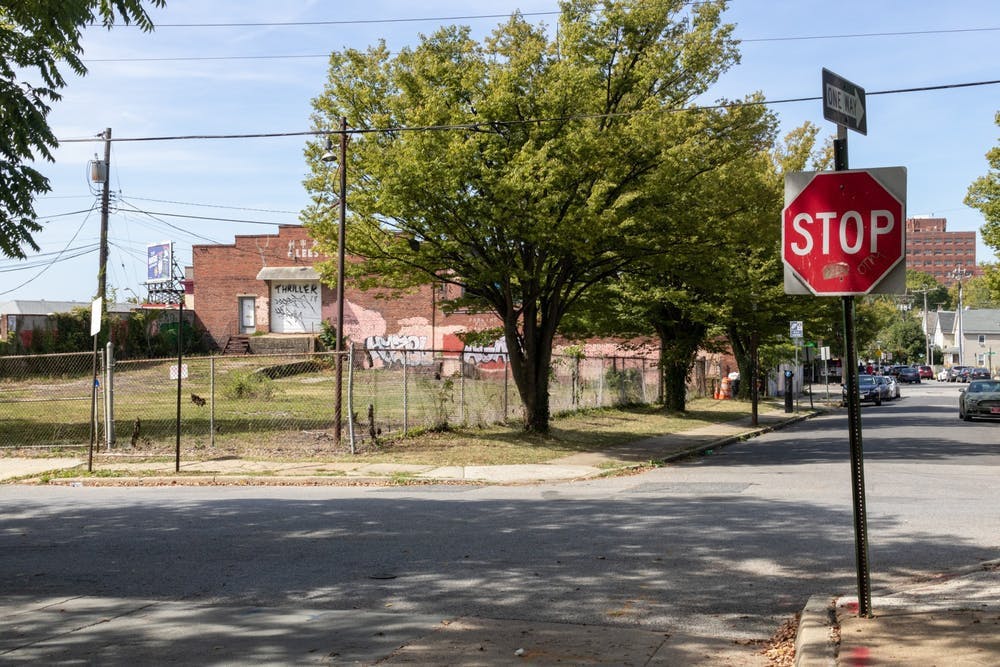IDEAL, a nonpartisan political student organization at Hopkins, hosted a student-led forum to discuss navigating civic engagement at the University and Baltimore on Feb. 7.
At the forum, students discussed their initial thoughts on arriving in Baltimore and how those impressions changed since exploring the community beyond Homewood Campus.
Sophomore Eirnin Mahoney explained that they had gotten critical responses when sharing their decision to attend school in Baltimore.
“I told everyone I was going to school here, and everyone told me that it was a dangerous city,” they said. “I had visited campus and was confused because everything seemed fine. My extended family still joke about the danger in Baltimore.”
Freshman Darrell La agreed that people have a lot of misconceptions about Baltimore.
“There are a lot of stereotypes about Baltimore, and a lot of those images include social unrest and lack of safety,” he said. “I have been down the street in Baltimore when it was dark, and it was scary not because I was in Baltimore, but because it was dark.”
Freshman Tess Lepelstat, secretary of IDEAL, explained how students’ preconceived notions of Baltimore and the resulting “Hopkins bubble” stop students from moving outside of their comfort zone and trying new experiences in Baltimore.
In an email to The News-Letter, junior Sigrid Edson, president of IDEAL, shared that the organization hopes to promote open and productive political discourse among students and faculty and encourage civic engagement on all levels.
Edson emphasized that students should make an effort to engage with the city they live in.
“It's important that students interact with the city of Baltimore beyond campus because this is our home for four years,” she wrote. “Because of the complicated and often violent historical relationship between the University and the city, it is our responsibility as students to educate ourselves and hopefully be a positive force, not only as temporary residents but as actual community members.”
During the discussion, La encouraged students to engage with local businesses and contribute to the community and local economy.
In an email to The News-Letter, Mahoney added that the college experience is not only about classroom learning. They shared how engaging with the city and surrounding neighborhoods can provide experiences and life perspectives that students wouldn’t have engaged with otherwise.
“College is for learning about life, including learning about people with very different lives from your own,” they wrote. “This city is full of amazing people who can change your perspective on life if you take a little time to engage with them.”
Edson believes that discussions about civic engagement, like the events that IDEAL hosts, can help many students stay informed when trying to navigate the news surrounding recent events.
“Framing conversations around civic engagement — that is, around the question of what we can do in our public lives to be active members of our communities and make changes on issues that matter to us — is more meaningful and less demoralizing than simply paying attention,” she wrote.
Mahoney explained how community organizations depend on the effort and support of their residents.
“People who are civically engaged vote in elections, advocate for issues they care about, volunteer at local organizations and get to know the people in their community,” they wrote. “Being civically engaged can also be an incredibly rewarding experience: You form personal relationships, learn about people who are different from you and often find opportunities to do something you find enjoyable.”
They noted how civic engagement does not look the same for everyone and that students can use their unique interests and talents to contribute to and engage with the community.
“I’ve browsed flea markets in Remington, bought pasta at the Rotunda, walked shelter dogs in Cherry Hill and attended a local punk concert in a venue called the Phoenix Art Yard. I hope that every Hopkins student can find as much joy in Baltimore as I do,” they wrote.





